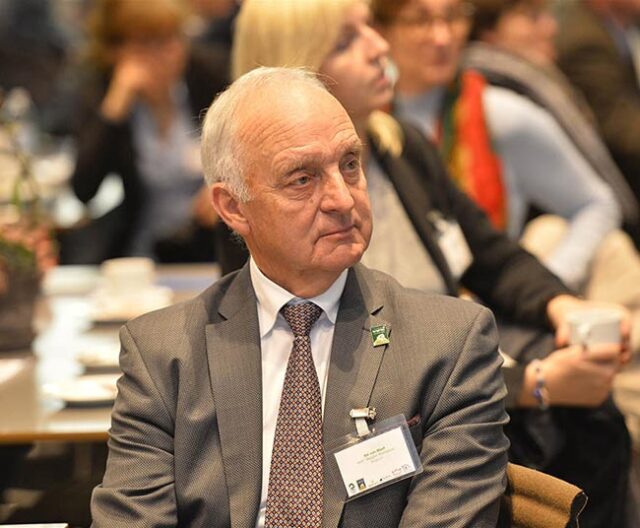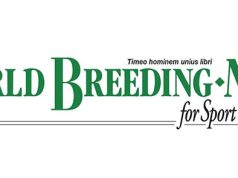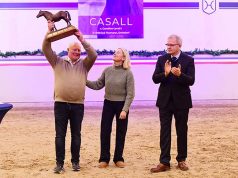By Jo de Roo
Photography: © WBFSH
Last month we published a compact interview with Rik Van Miert that had been conducted on behalf of the WBFSH... But some of his answers prompted us to delve deeper and publish more comprehensive insights into his very earnest and intuitive breeding philosophies.
Born during the turbulent WWII years in 1943, Rik Van Miert (1943) is an intelligent, fluent, modest man with a big heart for horses. Due to his experience as a breeder, his insight, knowledge, vision and diligence, his personal opinion was often sought after, regardless of his role as a former WBFSH board member.
In fact, Rik Van Miert’s notoriety extends beyond his WBFSH days as he was, for instance, the founder of the Corsendonck Dressage Cup, has been a member of the organizing committee of Jumping Mechelen for some time, and can add vice-president of the WBFSH to his impressive resumé. But, high winds blow on high hills, which is something Rik has had to experience several times, including at the start of the Corsendonck Dressage Cup, and then the uncoupling of the WBFSH and BCM which was subsequently seen as a good move.
With the same passion with which he bred horses until very recently, during this interview he talks about breeding topics, types of breeders, reproductive techniques, his good friend the late Eric Wauters†, the welfare of the horse, and much more... Starting with the most obvious question:
Q Why your affinity with horses?
Through my parents. My father was working in the cavalry of the Belgium army at the time. My mother’s parents had an inn in Vosselaar, located between Antwerp and Turnhout. The cavalry (soldiers on horseback) and coachmen with colonial goods stopped at the inn to water their horses and rest them, as well as to eat and drink something themselves. This is how my mother came into contact with horses and learned to ride.
By the way, it was also through this inn that my mother met my father. From the moment my parents settled in the Kuiltjesstreet in Oud-Turnhout, my father started breeding. Initially he bred draft horses, later agricultural riding horses and Warmbloods. My parents then shared one form of relaxation: going for a horse ride on Sundays.
Q At what age did you start breeding horses yourself?
My father went to school at a Jesuit college until he was 18. In our village he was the only one who spoke good French, so wrote letters to authorities at the request of neighbours, etc. He was also the first resident of the village to have a telephone. He had a very good voice and could sing very well, and was the intellectual man within the community. We are talking about the 1950s, which is when my father started breeding.
I was 14 years old when I bred my first foal. I was given a mare and was allowed to breed with her and choose a stallion for her myself. When she was ready to be covered, I saddled her up and rode her for an hour to the stallion keeper. I was also the first rider to trot a mare during an agricultural riding horse demonstration. BWP figureheads canon De Mey and Daniël van de Sompele came there to explain (providing a commentary).
Q Why did you start breeding?
It has always been a passion which I and some of my brothers inherited from our father. Four family members have been involved in breeding, including my youngest brother Frans (the founder of Haras des Rêves) and Jos. I bred my last foal a few years ago and stopped, mainly due to lack of time.
I was a pharmacist by profession, initially running my own practice and later becoming a zone manager for a group of pharmacies. I worked from an office in Antwerp and often came home late at night so, as a result, there was less time available for my horses. At a certain point I put an end to my horse breeding, although some of my grandchildren have now taken over the torch. I can still advise and influence them when it comes to breeding... To read the complete article you need to be a subscriber
CLICK HERE TO SUBSCRIBE TO BREEDING NEWS
SUBSCRIBERS CAN READ THE COMPLETE ARTICLE BY LOGGING IN AND RETURNING TO THIS PAGE



